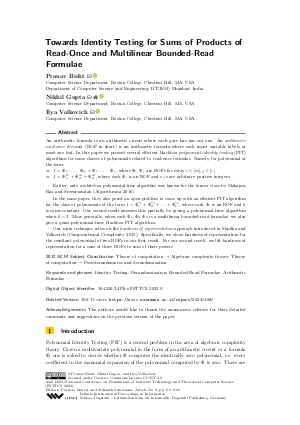LIPIcs.FSTTCS.2023.9.pdf
- Filesize: 0.93 MB
- 23 pages

 Creative Commons Attribution 4.0 International license
Creative Commons Attribution 4.0 International license
















































Feedback for Dagstuhl Publishing